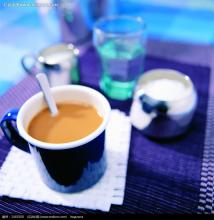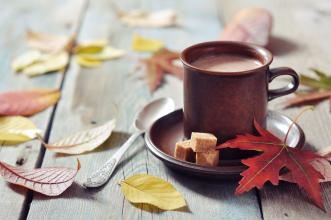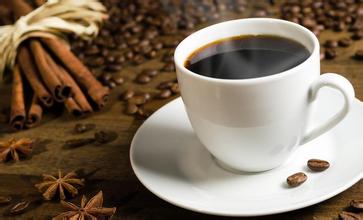Introduction to the characteristics of the manor producing area of pure and full-bodied Guatemalan coffee boutique coffee bean flavor
The Patriotic Party: the ruling party. Retired General Otto Peres founded the party on December 20, 2001 and served as the party's de facto leader. Originally a member of the ruling coalition of the Berhe government, he withdrew in June 2004 due to political differences. General Secretary Rosanna Baldetti. [16]
National Union of Hope: opposition. After the split of the New National Union in 2001, it was formed by former President Colom (formerly part of the National Revolutionary Union of Guatemala) as a centre-left political party. General Secretary Hailo Joaquin Flores.
National League: opposition parties. In 2003, it was composed of three small center-right parties, namely, the Reform Movement, the National Solidarity Party and the Mmur17 Movement, and won the general election of that year. During the period from January 2004 to January 2008, the allied parties broke away from the ruling alliance one after another. The coalition lost the general election in 2007. General Secretary Jaime Antonio Martinez Loisa. [17]
Republican Front of Guatemala: opposition party. Founded in 1990 by retired General Rios, he has a conservative mind and has a great influence in rural areas. He was in power from January 2000 to January 2004. General Secretary Luis Fernando Perez, President of Guatemala Otto Perez Molina. Born in Guatemala City on December 1, 1950, entered in 1966
Otto Perez Molina
Otto Perez Molina
He studied at the Polytechnic Institute of Guatemala and then at the American School of the United States Army and the Inter-American Defense Institute. He was mainly responsible for military intelligence when he was in service. In 1982, he supported the then Defense Minister Oscar Mejia in launching a military coup that overthrew the government of Efrain Rios Mont. From 1993 to 1995, he served as Chief of staff of the Presidential Palace. In 1996, a peace agreement was signed on behalf of the military, ending a 36-year civil war. From 1998 to 2000, he served as a representative of the Defense Committee in Central America. He retired in January 2000, established the Patriotic Party in December 2001 and was elected a member of the National Assembly in 2004. He lost the presidential election in 2007. On November 6, 2011, Guatemala was elected President of danger through the second round of presidential election. The national costumes of Guatemala are colorful and varied. The clothes of more than 100 tribes have different ways of wearing, patterns and tones. As long as you look at the clothes, you can know the tribe or the area where they live. Many of them like to collect hand-made cloth dolls dressed in traditional clothes to satisfy a kind of nostalgia. In addition to decoration, the embroidery on Guatemalan men's and women's clothing also has symbolic meanings, such as the feathered snake and the sun symbolizing the Mayans. According to the subtle changes in clothing, we can also distinguish between a person's social status, marital status, and whether the clothing is worn on a daily basis or on holiday.
Taboo
The local people of Guatemala have a weak sense of time. Not only do they think that 13th and Friday
It's unlucky, and I don't like the number 14. Note that it is best not to talk about business in a local person's home or in front of his family. Get used to shaking hands when meeting. Good friends hug each other and pat each other on the shoulder. When women meet, if they are friends, give each other a gentle hug and kiss each other on the cheek. When guests are invited as guests, they can give the host a bouquet of flowers or candy as a gift.
Here, the slopes of Sierra Madre volcano provide ideal conditions for growing high-quality coffee beans, and coffee growing at high altitudes is full of vitality. Compared with other kinds of coffee, tasters prefer this mixed flavor coffee with spicy flavor. The extra-hard coffee beans here are a rare good coffee with full grains, delicious taste and balanced acidity. In addition, Guatemala has attracted a lot of attention because of its giant coffee beans.
Antigua is a famous producer of coffee. Antigua coffee is produced in Hacienda Carmona, where the best quality coffee is EL Pulcal, which is not only of good quality, but also has a stronger flavor, richer taste and stronger tobacco flavor than other Guatemalan coffee. Every 30 years or so, the area near Antigua is hit by a volcanic eruption, which provides more nitrogen to the already fertile land, and plenty of rainfall and sunlight make the place more suitable for growing coffee.
Other coffee producers include San Marco, Oriente & Coban, Palcya, Mataquescuintia and La Uman in Sacapa. Few places in the world offer a variety of high-quality coffee beans like those produced in Guatemala. The excellent quality of Guatemalan coffee beans is due to the unique conditions of their producing areas, including different climate change in each region, rich soil formed by volcanoes, abundant natural water resources, high-altitude mountains and shady and moist forests.
Guatemala has seven major coffee producing areas: Antigua,Coban,Atitlan,Huehuetenango,Fraijanes,Oriente and San Marcos.
The coffee beans in each producing area have their own characteristics, and they have won a lot of praise for Guatemala in the international community, especially the perfect harmony of Antigua's sour, sweet and mellow texture. Add a touch of smoke and emphasize its mystery, and after tasting it, you will have a reason not to look everywhere for alternatives to Guatemala, which borders Mexico to the north, Honduras and El Salvador to the south, the Caribbean to the east and the Pacific Ocean to the west, with tropical rain forests, volcanic geology, plateau valleys and ever-changing micro-climate. Guatemalan coffee once enjoyed the reputation of the best quality coffee in the world. The extra hard coffee beans here are full-grained, delicious and balanced, and the coffee made with it is pure and full-bodied.

Important Notice :
前街咖啡 FrontStreet Coffee has moved to new addredd:
FrontStreet Coffee Address: 315,Donghua East Road,GuangZhou
Tel:020 38364473
- Prev

Rich fragrant Indonesian Java coffee flavor taste manor boutique coffee introduction
Indonesia is located in the Pacific earthquake belt, where thousands of large and small earthquakes occur every year. In 2006, several strong earthquakes occurred on the island of Java. On May 27, an earthquake measuring 5.9 on the Richter scale struck Yogyakarta and parts of Central Java province, killing more than 6000 people. On July 17, an earthquake measuring 6.8 on the Richter scale struck the Indian Ocean in southern Java and triggered a tsunami, causing heavy casualties. July nineteenth
- Next

Introduction to the delicious Kilimanjaro Coffee Manor in Tanzania
Tanzania was once a famous frontline country and made great contributions to the political liberation of the African continent. It pursues a foreign policy of non-alignment and good-neighborliness and friendship, and advocates the development of friendly and cooperative relations with other countries on the basis of non-interference in each other's internal affairs and mutual respect for sovereignty. At the beginning of this century, the pragmatic tendency has increased, emphasizing economic interests as the core, diluting the principle of non-interference in internal affairs, and developing with all donations.
Related
- Detailed explanation of Jadeite planting Land in Panamanian Jadeite Manor introduction to the grading system of Jadeite competitive bidding, Red bid, Green bid and Rose Summer
- Story of Coffee planting in Brenka region of Costa Rica Stonehenge Manor anaerobic heavy honey treatment of flavor mouth
- What's on the barrel of Blue Mountain Coffee beans?
- Can American coffee also pull flowers? How to use hot American style to pull out a good-looking pattern?
- Can you make a cold extract with coffee beans? What is the right proportion for cold-extracted coffee formula?
- Indonesian PWN Gold Mandrine Coffee Origin Features Flavor How to Chong? Mandolin coffee is American.
- A brief introduction to the flavor characteristics of Brazilian yellow bourbon coffee beans
- What is the effect of different water quality on the flavor of cold-extracted coffee? What kind of water is best for brewing coffee?
- Why do you think of Rose Summer whenever you mention Panamanian coffee?
- Introduction to the characteristics of authentic blue mountain coffee bean producing areas? What is the CIB Coffee Authority in Jamaica?

